Your personal trainer usually advises that you take amino acids, but as with other supplements, 90% of the time they fail to tell you WHAT amino acids are and WHY they are so important. Unfortunately most personal trainers assume that their clients have knowledge of these types of things and end up just showing you what to do and telling you what to take without the “why”. Well you NEED more out of your personal trainer.
A personal trainer is NOT a drill sergeant, a trainer’s function is to guide you and educate you so that you can sustain a healthy, active lifestyle long after you have worked with them. We need to wise up and not be afraid to speak up! WHY must I take this? What benefits do these exercises have? Which muscle group should it be working? Do not be afraid to ask questions, you hire your trainer to teach you the things you do not already know about health and fitness.
Today’s question is: “What are amino acids and what makes them so important?”
Almost your entire function evolves around amino acids!
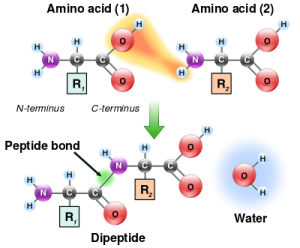 Amino acids are organic compounds which contain at least one amino group (-NH2) and a carboxy (-COOH) group. In the human genome, 20 amino acids are created to build proteins and therefore termed proteinogen. Besides that, there are round about 250 amino acids which do not form proteins. These are used to form sugar for example.
Amino acids are organic compounds which contain at least one amino group (-NH2) and a carboxy (-COOH) group. In the human genome, 20 amino acids are created to build proteins and therefore termed proteinogen. Besides that, there are round about 250 amino acids which do not form proteins. These are used to form sugar for example.
The 20 proteinogen amino acids are also called standard amino acids, which can be divided into three groups: essential, semi-essential and non-essential. Eight amino acids are essential for humans, as the body cannot produce them by themselves, and they have to be supplied externally. These are: isoleucine, leucine, lysine, methionine, phenylalanine, threonine, tryptophan and valine.
Arginine and histidine form the group of the semi-essential amino acids and need to be consumed in the diet under certain circumstances.
There are ten non-essential amino acids which can be be produced in the body, they are: alanine, asparagine, aspartic acid, cysteine, glutamine, glutamic acid, glycine, proline, serin and tyrosine.
Remember that ‘essential’ and ‘non-essential’ does not mean that one is more important than the other. This is because dividing the two does not assess whether the body has a sufficient supply of the amino acids in question at its disposal. Protein requirements can differ vastly from person to person. The amount of semi-essential and non-essential amino acids produced by the body itself depends on many different factors, like age, mental or physical stress or distress situations. These determine the various amino acid levels required to stay fit and healthy.
It all depends on the structure
From a biochemical point of view, the proteinogen amino acids can be differentiated through their structure. They come in two symmetrical forms: the L- and D- structure. The L- amino acid structure is the only one natural to the body. This is why it is important to be aware when choosing additional amino acids through dietary supplements, that the ingredients contain L- and not a D- or DL- (mixed) amino acid form.
I am certain that the most relevant amino acids for the human body are the so-called proteinogen amino acids, in particular the L-amino acids.A good balance of vitamin B supply is decisive for the amino acids to have an optimal effect. The B vitamins should not be separated from their naturally occurring combination. This means they should not be taken individually, as this could negatively impact their effect.
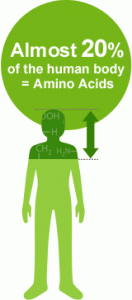 Because 20% of our bodies are made up of protein, it plays a very important role in basically all our biological processes and amino acids are the building blocks of that.
Because 20% of our bodies are made up of protein, it plays a very important role in basically all our biological processes and amino acids are the building blocks of that.
A large chunk of our muscles, tissue and cells are made up of amino acids, meaning they carry out important functions of the body, like giving cells structure. They also have the important task of transporting and storing nutrients. Amino acids influence the function of organs, arteries, tendons and glands and are essential for healing wounds and repairing tissue, especially in the muscles, bones, skin and hair. They also remove metabolism produced waste deposits.
The effects of amino acids
Research over the years has shown that amino acids have assisted against diabetes, osteoporosis, heart trouble, metabolic disorders, erectile dysfunction, anti-aging as well as menopausal complaints, to name but a few.
That was the message from the international symposium of the Society for Applied Amino Acid Research in Treatment and Practice held in 2005 and attended by one hundred scientists from six different nations. Even though studies show that the effects of amino acids are positive, they are still not properly recognised in the field of medical science. They are necessary to build structural proteins such as collagen, enzymes, clotting mechanisms, antibodies, transport molecules, muscles and hormones.
“Poorly balanced diets lead to the supply of amino acids to the body being below recommended levels. The prevention and treatment of certain illnesses frequently leads to increases in the amino acid dosage requirements, which means they should be taken as supplements. This is one of the conclusions made from the congress participants. Vegetarians as well as people with chronic disorders of the liver and kidneys have a greater risk of developing an amino acid deficiency. The amino acids arginine, glutamine, lysine, methionine and taurine have immunomodulating (a chemical agent that modifies the immune response or the functioning of the immune system by the stimulation of antibody formation or the inhibition of white blood cell activity)effects and are beneficial for people with an immunodeficiency. All in all, amino acids have an enormous potential for use in the treatment and prevention of a wide range of illnesses.” summarised Dr Jürgen Reimann.
Amino acids can support the body in many different ways
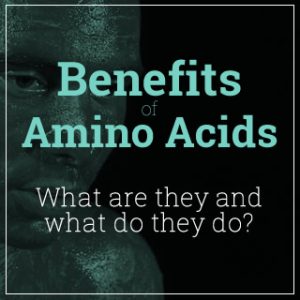 In conclusion and addition to the traditional conventional medicinal support, amino acids provide natural alternative approaches in the following areas:
In conclusion and addition to the traditional conventional medicinal support, amino acids provide natural alternative approaches in the following areas:
- Anti-aging
- Arthritis
- osteoporosis
- Cholesterol,
- Diabetes,
- Fat-burning,
- Healthy skin,
- Hair loss,
- Menopause
- Virility
- Sleep, mood and performance
 Arginine, or L-arginine as it is called with its L-structure, is a semi-essential amino acid. Arginine is involved in many metabolic processes and important in the treatment of heart diseases and high blood pressure. Arginine improves the circulation, strengthens the immune system and has a positive influence on male libido. Research suggests that the amino acid accelerates the rate of the healing of wounds, improves the burning of excess fat and can be used in weight-reducing diets. Its role in decreasing cholesterol levels can be ascribed to its function as biological precursor of nitric oxide (NO).
Arginine, or L-arginine as it is called with its L-structure, is a semi-essential amino acid. Arginine is involved in many metabolic processes and important in the treatment of heart diseases and high blood pressure. Arginine improves the circulation, strengthens the immune system and has a positive influence on male libido. Research suggests that the amino acid accelerates the rate of the healing of wounds, improves the burning of excess fat and can be used in weight-reducing diets. Its role in decreasing cholesterol levels can be ascribed to its function as biological precursor of nitric oxide (NO).
Potency can be increased through arginine
Besides the various chemical drugs, potency and sexual performance can be positively influenced by particular amino acids. This can mainly be applied to the amino acids arginine and ornithine.
In 1998, the Nobel Prize for Medicine was given for specific research concerning nitric oxide and its conversion from arginine. The amino acid L-arginine improves the circulation and oxygen supply of the coronary and peripheral vessels through the release of nitric oxide. When people take arginine, the nitric oxide level in the blood increases. Nitric oxide relaxes the walls of the blood vessels and improves the circulation in the whole body, including the erectile tissue in the penis. Furthermore, arginine increases the nitric oxide level, which makes the arteries more elastic. This effect can lower blood pressure and improve the ability to have an erection. In addition to that, nutrients and oxygen are able to reach the organs quicker through the blood which has a positive effect on male potency, stamina and sexual performance.
Free of side-effects
Arginine’s ability to improve erections has been long since known. But the advantages of amino acids are so far only able to take pride of place when discussing the most well-known sexual enhancer pills. Ultimately arginine works in a similar way to synthetic pills, the difference being that it is cheaper and free of side effects. The difference between arginine and other potency pills is that arginine does not have an immediate effect and instead works over time. This is another reason why it is not dangerous to take arginine.
The vasodilating (the dilatation of blood vessels, which decreases blood pressure) effect of arginine promotes hair growth
In addition to the potency-enhancing attributes, arginine is extremely important to hair growth, owing to its role of roming nitric oxide. This is because the nitric oxide formed from arginine opens the potassium channels of the cells. This can improve the circulation to the hair roots and stimulate hair growth.
Other functions of arginine
 Arginine helps to reduce insulin resistance and increases glucose tolerance and insulin sensitivity in type 2 diabetes mellitus. Besides other measures which are important for diabetics, such as a healthy diet and weight control, arginine can help to minimize insulin requirements.
Arginine helps to reduce insulin resistance and increases glucose tolerance and insulin sensitivity in type 2 diabetes mellitus. Besides other measures which are important for diabetics, such as a healthy diet and weight control, arginine can help to minimize insulin requirements.
Ammonia is a cellular toxin created from the building of protein. If there is too much ammonia in the body, (if the liver isn’t working properly for example) ammonia can reach the brain and interfere with crucial functions. Insomnia can be the result of ammonia levels being too high in some instances. Simply put, taking supplements containing amino acids such as arginine, ornithine and glutamine can promote sleep, because they detoxify ammonia as part of the urea cycle.
Collagen is a protein which is a fundamental component of various connective tissues like cartilage and bone. Arginine supports the production of collagen and is therefore an important contributor to bone growth. In turn, arginine supports the growth of the osteoblasts which form the bone mass. A study from 2002 has proven that an arginine deficiency, especially in older women, can be the cause of the emergence of osteoporosis.
Carnitine
 The naturally-occurring, chemical compound carnitine, or L-carnitine, is technically speaking, not an amino acid. It is actually a dipeptide (a peptide composed of two amino-acid residues) made from the essential amino acids lysine and methionine. Therefore, it is often classed as a conditionally essential amino acid. Carnitine plays an important role in the energy metabolism of animal and plant cells, it improves the energy supply of brain cells and helps to lower stress levels, whether physical or mental in nature. Carnitine plays an important role in the energy exchange between animal and plant cells, improves the energy supply to the cells in the brain and leads to a higher stress resistance. It also becomes easier to cope with stresses and strains, whether they are physical or mental.
The naturally-occurring, chemical compound carnitine, or L-carnitine, is technically speaking, not an amino acid. It is actually a dipeptide (a peptide composed of two amino-acid residues) made from the essential amino acids lysine and methionine. Therefore, it is often classed as a conditionally essential amino acid. Carnitine plays an important role in the energy metabolism of animal and plant cells, it improves the energy supply of brain cells and helps to lower stress levels, whether physical or mental in nature. Carnitine plays an important role in the energy exchange between animal and plant cells, improves the energy supply to the cells in the brain and leads to a higher stress resistance. It also becomes easier to cope with stresses and strains, whether they are physical or mental.
Transferring fat to energy is one of the main functions of carnitine
Owing to its fat-burning capabilities and the optimization of fat metabolism, carnitine is familiarly known as a ‘fat-burner’. Fatty acids are transported into the cells, where they are burned to release energy by being transported to mitochondria, the power stations of the cells. The useful long branched chain fatty acid molecules can only pass through the inner mitochondrial membrane through esterification with carnitine. This is contrary to medium and short-chain fatty acids which can penetrate the membrane without this biocarrier.
In connection with regular sporting activities, carnitine can lead to a higher fat burn rate. This can be beneficial to those wishing to lose weight, as doing sport can become more enjoyable as carnitine can make physical activity last longer without fatigue, by oxidizing the amino acids in the body. The amount of carnitine controls the speed at which fats can be transported. The demand is different in men and women, as men naturally have more carnitine in their red blood cells than women.
Investigations have shown that obesity can lead to a carnitine deficiency. In these cases, supplementation with carnitine seems to be beneficial.
Carnitine is a useful supplement in the treatment of diabetes
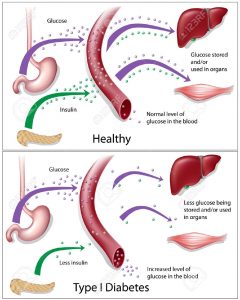 One study from 2007 showed that L-carnitine improves insulin sensitivity as part of a diabetes treatment, when taken as a supplement. Also, it reduces LDL cholesterol levels in diabetics and has a positive effect on blood fats (tyglycerides).
One study from 2007 showed that L-carnitine improves insulin sensitivity as part of a diabetes treatment, when taken as a supplement. Also, it reduces LDL cholesterol levels in diabetics and has a positive effect on blood fats (tyglycerides).
Carnitine also protects free radicals and thus prevents oxidative stress and reduces the risk of heart, circulative, kidney and eye illnesses. Diabetics are particularly prone to such illnesses, as a higher blood sugar level attacks the blood vessels.
Carnitine is important for healthy skin
The largest human organ, the skin, requires creatine, in order to maintain its natural functions. This supports the creation of connective tissue, the skin’s metabolism and cell renewal. Creatine is made of the amino acids arginine and methionine, which is again a part of carnitine. Carnitine also indirectly plays an important role for healthy skin.
Glutamine and glutamic acid
 The amino acids glutamine and glutamic acid are closely related in a chemical sense. The body can produce L-glutamine itself, from L-glutamic acid through the glutamate ammonium ligase. Considering the numerous metabolic processes glutamine is a part of, it is not surprising that it is the amino acid with the highest concentration in blood plasma, musculature and cerebral and spinal fluid. At 60%, it represents the largest amount of free amino acids in the body.
The amino acids glutamine and glutamic acid are closely related in a chemical sense. The body can produce L-glutamine itself, from L-glutamic acid through the glutamate ammonium ligase. Considering the numerous metabolic processes glutamine is a part of, it is not surprising that it is the amino acid with the highest concentration in blood plasma, musculature and cerebral and spinal fluid. At 60%, it represents the largest amount of free amino acids in the body.
The demand for glutamine increases with physical and mental stress. Production of this important amino acid, which takes place in the body, often slows down with age and does not generate sufficient amounts. Glutamine supplements are advised in such a case.
Glutamine makes the skin firm and regulates the acid-base balance
A supply of essential micro nutrients promotes the production of skin cells and slows aging. This is why a balanced diet is the foundation for healthy skin. An unbalanced, unhealthy diet can lead to hyperacidity (a condition where the level of acid in the gastric juices is excessive) and the acid-base ratio becoming imbalanced with the consequence that cells and tissues become destroyed.
Glutamine plays a decisive role in keeping a balanced acid-base ratio. Thanks to glutamine, toxic ammonia is separated off in the kidneys and the basic ammonia molecule is connected to acids and is excreted. A further advantage is that bicarbonate (which is necessary for the neutralization of acids) can be saved.
A sufficient supply of glutamine is important for firm, healthy skin. If insufficient glutamine is available, the body takes the necessary protein from muscle mass and converts it to glutamine and energy. This leads to catabolism, muscle strands becoming thinner and the skin becomes saggy. This is why glutamine has been referred to as an “internal fountain of youth” by scientists.
Glutamine strengthens your immune system and is necessary for hair growth
Glutamine serves as a nitric oxide and carbon supplier and is also an important element for building and maintaining muscles. The amino acids are necessary for nucleotide synthesis, where cells which divide quickly such as those for the immune system and hair follicles are dependent on this energy source.
Glutamine can aid in preventing fat storage
Glutamine can be converted to glucose in the kidneys, without effecting glucagon or insulin levels. Glutamine can combat the storage of fat from food by bypassing fat deposition normally caused by insulin. This can be helpful when trying to regulate body weight. There are also suggestions that glutamine can reduce the demand for sugar and alcohol. This is usually why your trainer advises glutamine.
Other functions of glutamine and glutamic acid
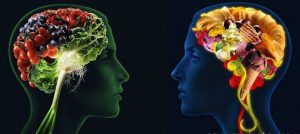 During the synthesis from glutamine to glutamic acids, the brain is protected from the toxic effects of ammonia. This protection against the cell toxin prevents impediments to brain functions and improves long and short term memory.
During the synthesis from glutamine to glutamic acids, the brain is protected from the toxic effects of ammonia. This protection against the cell toxin prevents impediments to brain functions and improves long and short term memory.
Patients in states of exhaustion and who have cognitive brain dysfunctions often have a glutamic acid deficiency. Anxiety, tension, sleep disorders and insomnia and a lack of concentration are all connected to this. Glutamine increases the production of the gamma-amino butyric acid (GABA). GABA is an important neurotransmitter which acts like a lock keeper to slow down the sodium channels between the nerve cells in the brain and is basically a natural tranquilizer. If the body has enough glutamine, it can build GABA which can have positive results such as inner calm and tranquillity, also in stressful situations, improved concentration levels and a more peaceful and fulfilling sleep.
Methionine
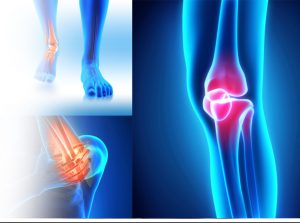 When in its natural L-form, methionine is a proteinogen amino acid. It is classed as an essential amino acid and cannot be produced by the body itself. This means that a sufficient supply of methionine in the diet or as a dietary supplement is of great importance.
When in its natural L-form, methionine is a proteinogen amino acid. It is classed as an essential amino acid and cannot be produced by the body itself. This means that a sufficient supply of methionine in the diet or as a dietary supplement is of great importance.
Sulphur compounds occur in all living creatures and have a multitude of functions. Besides cysteine, methionine is the only sulphur-containing amino acid. Furthermore methionine plays an important role in the production of other proteins, such as carnitine or melatonine. Methionine has a fat-dissolving effect and reduces the depositing of fat in the liver.
Methionine is important for forming cartilage
The cartilage in the joints requires sulphur for its production. If there is not enough sulphur available in the body, this can have negative effects for the healthy individual over the long term. People who suffer from arthritis can experience negative effects such as a prolonged healing process for the damaged tissue, if there is a sulphur deficiency at the beginning of the illness.
Studies have shown that the cartilage from healthy people contains approximately three times more sulphur than in arthritis patients. To make things more complicated, various arthritis medications connect sulphur, which are the salts in the sulphuric acid. The demand for sulphur is increasing to more than average levels.
It is advised to boost the body’s own sulphur production. The problem is that it is not possible to take sulphur in tablet form or dietary supplement. Instead, a supply of methionine can indirectly prove beneficial as in combination with the B vitamins, several sulphur-containing connections can be produced. Methionine is therefore meaningful in three ways: it has anti-inflammatory properties, is a pain-reliever and stimulates the formation of cartilage tissue.
Methionine strengthens the nails and combats loss of hair
 Owing to its capacity to form sulphurous chains which in turn connect with each other, methionine is able to strengthen the structure of hair and nails. A study published, resulting from a dermatology congress in Florence in 2006, found that the amount of hair found to be in the growth phase was significantly higher than the control group than the group of people who had taken methionine as part of an amino acid and vitamin B complex combination treatment.
Owing to its capacity to form sulphurous chains which in turn connect with each other, methionine is able to strengthen the structure of hair and nails. A study published, resulting from a dermatology congress in Florence in 2006, found that the amount of hair found to be in the growth phase was significantly higher than the control group than the group of people who had taken methionine as part of an amino acid and vitamin B complex combination treatment.
Ornithine
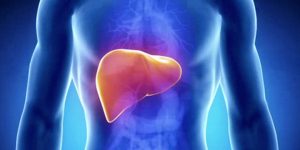 Ornithine is a non-proteinogen amino acid that plays a central role in the urea cycle. Ornithine can be changed to L-arginine through the production of urea. It assists in detoxification and therefore contributes to liver health.
Ornithine is a non-proteinogen amino acid that plays a central role in the urea cycle. Ornithine can be changed to L-arginine through the production of urea. It assists in detoxification and therefore contributes to liver health.
Ornithine does not belong to the twenty standard amino acids, but it is important in combination with arginine, particularly in the removal of ammonia, a performance-reducing end product of the protein metabolism. Besides assisting in liver function and its detoxification, ornithine also helps to accelerate wound healing, improve sleep patterns and increase erectile capability.
Ornithine in combination with arginine leads to more vitality
 Ornithine changes to arginine in the body very slowly. As the corresponding effects are long lasting, ornithine is the perfect complement to arginine. The combination of both amino acids stimulates the hormone distribution and production of insulin, generally improves the regeneration capabilities of the body and leads to a noticeably increased vitality. In men, this also has the advantage of increasing sex drive
Ornithine changes to arginine in the body very slowly. As the corresponding effects are long lasting, ornithine is the perfect complement to arginine. The combination of both amino acids stimulates the hormone distribution and production of insulin, generally improves the regeneration capabilities of the body and leads to a noticeably increased vitality. In men, this also has the advantage of increasing sex drive
Under normal conditions, the body is able to produce sufficient amounts of both amino acids by itself. However, stress, illness and malaise (a feeling of discomfort, illness, or unease) can limit their production. It is then recommended to increase the intake of food containing arginine and ornithine. Examples of these are fish, meat, dairy products, nuts, rice, soya and wheat. It is also possible to take amino acids in tablet, powder or capsule form. Combination products are particularly effective as other micro nutrients such as zinc, vitamin B and/or biotin are also included.
Taurine
 Taurine is a by-product of the sulphurous amino acids cysteine and methionine. Contrary to popular belief, Taurine is in itself not an amino acid in the scientific sense, as it does not contain a carboxy group. It is therefore in fact an amino sulphonic acid. Taurine is important for the body because of it’s part in the maintenance of organ and cell function. Because of its capabilities, such as being able to stabilize the fluid balance in the cells, its antioxidant effects and its relatively high presence in the heart muscles, I have decided to include it here.
Taurine is a by-product of the sulphurous amino acids cysteine and methionine. Contrary to popular belief, Taurine is in itself not an amino acid in the scientific sense, as it does not contain a carboxy group. It is therefore in fact an amino sulphonic acid. Taurine is important for the body because of it’s part in the maintenance of organ and cell function. Because of its capabilities, such as being able to stabilize the fluid balance in the cells, its antioxidant effects and its relatively high presence in the heart muscles, I have decided to include it here.
Taurine is important for the heart
The concentration of the amino sulphonic acid taurine in the heart muscle cells is significantly higher than all of the other amino acids. At 50%, it is the highest percentage of the entire free amino acid pools in the heart. In this way, taurine has an anti-arrhythmic as well as a positive inotropic effect on the heart, meaning it increases the regularity and strength of the heart concentration. Besides the blood pressure regulating properties, supplementation with taurine can be useful to lower cholesterol levels, as taurine stimulates the gall bladder.
Is there a connection between the gallbladder, high cholesterol and the heart? There is! And it is a strong one.
It is a well-known fact that the liver and the gallbladder regulate blood cholesterol level.
The link between the gallbladder and the heart can be traced to a substance produced by the liver and stored in the gallbladder known as bile. But that is a whole new article on its own.
Moving back to amino acids:
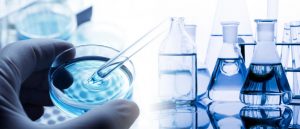 Meirion Jones, a notorious BBC journalist, reported that contrary to the old days, a large sum of doctors have now confirmed that amino acids (also in the form of nutritional supplements) can have positive effects.
Meirion Jones, a notorious BBC journalist, reported that contrary to the old days, a large sum of doctors have now confirmed that amino acids (also in the form of nutritional supplements) can have positive effects.
Jones and Erdmann explain the changes in medical opinion in the following way: “Unfortunately, in the real world countless factors are working to prevent our bodies from receiving a full and balanced supply of these all-important substances. Among these factors are the pollution caused by burning fossil-fuels, the hormones fed to cattle, the intensive use of fertilizers in agriculture, and even habits such as smoking and drinking, all of which can prevent our bodies from fully using what we eat. Worse still is the amount of nutrition that is lost from our food through processing before we actually get to eat it…By providing the body with optimal nutrition, amino acids help to replace what is lost and, in doing so, promote well-being and vitality.”
A recent study from Germany carried out by the DAK has revealed that the elderly in particular are more susceptible to suffering from malnutrition. “If the body is lacking in the minimum energy and nutrients, it will not be able to carry out its bodily and mental functions. Without the needed vitamins, proteins (amino acids), trace elements and minerals, there is a risk of debilities (frailty or weakness) and metabolic disorders which can have serious consequences.”
Jones believes that basically every disease caused by civilisation has a bottom line of imbalances in our metabolism. The amino-acid pool is jointly responsible for having a balanced metabolism.
The amino acid pool describes the entire amount of available free amino acids in the human body. The size of the pool is around 120 to 130 grams in an adult male. When we consume protein, the protein in the gastro-intestinal tract is broken down into the individual amino acids and then put back together again as new protein. This complex biological process is called protein biosynthesis. The entire amino acid pool is transformed, or “exchanged” three or four times a day.
This means the body needs to be supplied with more amino acids, partly by protein biosynthesis, partly by diet or through consumption of the correct dietary supplements.The objective is that the amino acid pool is complete and maintained in the correct combination. If the one or more amino acids are not available in sufficient quantities, the production of protein is weakened and the metabolism may not function as it should.
This does not only apply to older people, young people can also be affected by the negative consequences of a limited supply of nutrients. These include weight problems, hair loss, skin problems, sleep disorders, mood swings, erectile disorders and also arthritis, diabetes, cardiovascular imbalance (high cholesterol levels, high blood pressure) or even menopausal complaints.
And there you have it, I hope this article has been useful and has served its purpose in showcasing the importance of amino acids and why your personal trainer recommends them!

